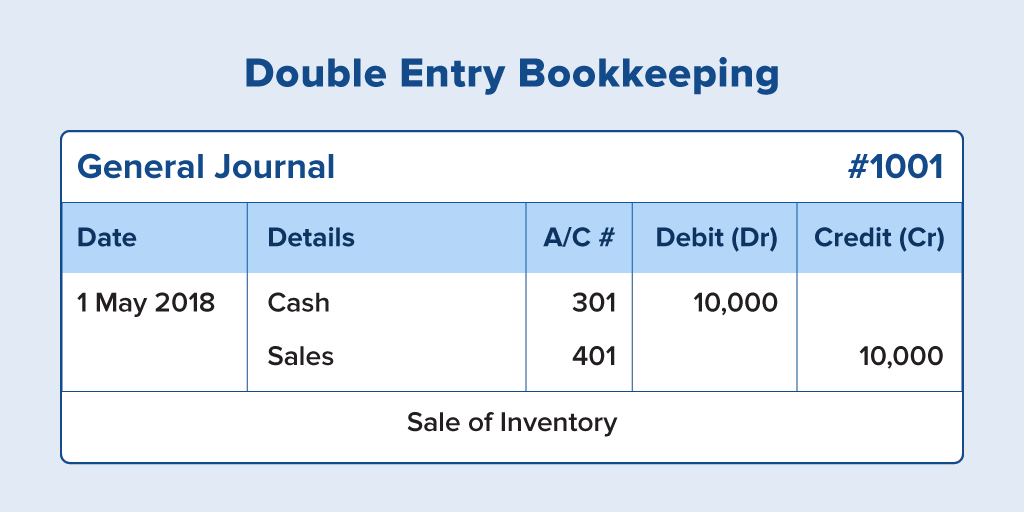Double Entry System
Double Entry is a method of accounting in which every transaction affects two accounts equally and correspondingly. That means one account’s value will increase and another account’s value will decrease at the same time.
For example, an accounting firm purchases office furniture. A transaction is recorded for this purchase where the accounting firm pays cash and the furniture store delivers the furniture. So, from the firm’s perspective, the cash account’s value decreases and the furniture account’s value increases.
This method of making two entries for every transaction (Double Entry System) makes accounting more reliable and accurate.

Related Articles
Single Entry System
Single Entry system is a method of accounting in which every transaction affects only one account. That means one account’s value will increase or decrease based on the transaction amount. Small businesses maintain their accounts using single entry ...Journal
A journal, commonly known as the Book of Original Entry or the Day Book is a book of transactions recorded in a chronological order. Usually, transactions are recorded in a journal before they are recorded in a ledger account. The details entered to ...Debit
Debit means an entry recorded for a payment made or owed. A debit entry is usually made on the left side of a ledger account. So, when a transaction occurs in a double entry system, one account is debited while another account is credited. An account ...System Hardening
The process of securing a system by reducing its surface of vulnerability, which is larger when a system performs more functions; in principle, a single-function system is more secure than a multipurpose one. Reducing available ways of attack ...Types of Accounts
According to the double entry system of bookkeeping, there are three types of accounts that help you to maintain an error-free record of your journal entries. Each account type has a rule to identify its debit and credit aspect called as the Golden ...